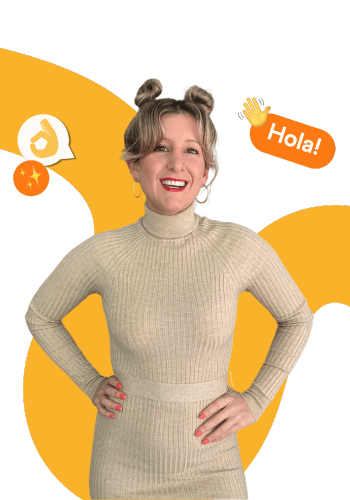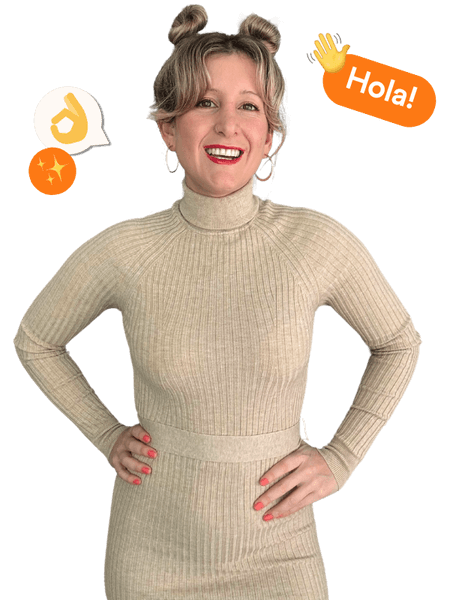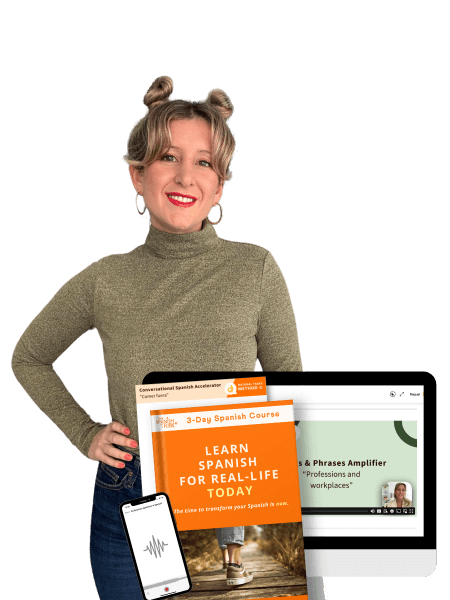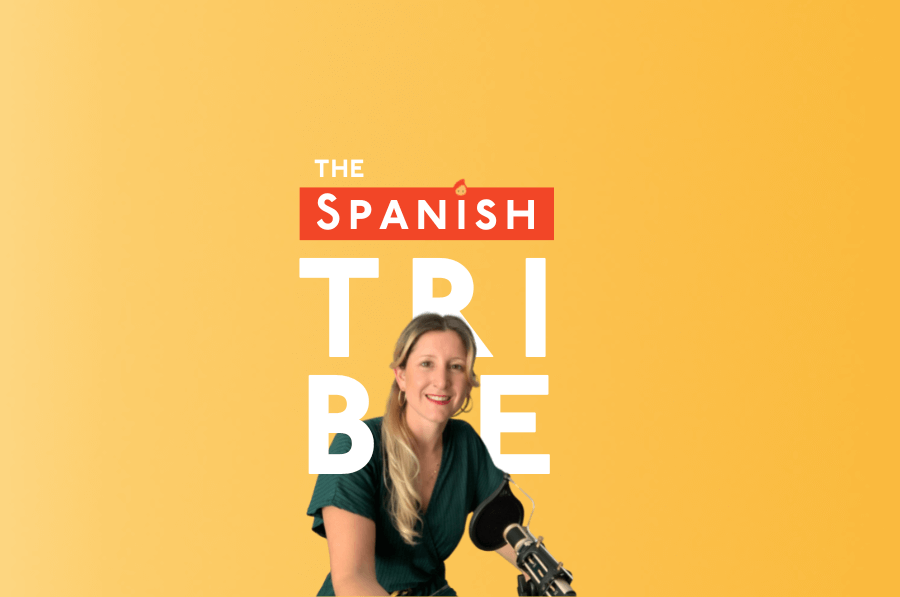Recap
Greetings
Hello = Hola
How are you? = ¿Qué tal?
How are you? = ¿Cómo estás?
How are you doing? = ¿Qué tal estás?
You can answer the same thing to each of these questions:
Very well = Muy bien or Bien
The full version is:
I ́m very well, thank you. = Estoy muy bien, gracias.
(But usually people just says “muy bien” or “bien”).
However, there are many options, dependant on how you are feeling.
Here are some of them:
Really well = Súper bien
Phenomenal = Fenomenal
Great = Genial
Wonderful = De maravilla
When you are feeling under the weather:
Not good = Mal
Very bad = Muy mal
Struggling on = Aquí, tirando (Literally: Here, pulling)
Terrible = Fatal
When you are neither one thing nor the other:
Okayish = Más o menos (Lit. More or less)
Normal = Regular (This actually has a negative connotation. It means you are not good.)
Then to reply to someone’s question:
And you? = ¿Y tú?
I ́m very well, too. = Estoy muy bien, también or just, Muy bien, también.
![]() Example dialogue 1:
Example dialogue 1:
– Hola, ¿qué tal?
– Muy bien, ¿y tú?
– Fenomenal, gracias.
– Me alegro.
![]() Example dialogue 2:
Example dialogue 2:
– Hola, ¿cómo estás?
– bien, gracias. ¿Y tú?
– Muy bien también.
Further examples of greetings:
What ́s new? = ¿Qué hay?
What ́s happening = ¿Qué pasa?
Typically, you respond to these two greetings with:
Nothing, here (just here) = Nada, aquí.
![]() Example dialogue:
Example dialogue:
– Hola, ¿qué hay?
– Nada, aquí. ¿Y tú?
– Nada, aquí también.
Introductions
What’s your name? = ¿Cómo te llamas?
My name is Albert = Me llamo Albert
Native speakers would say just the name:
– ¿Cómo te llamas?
– Albert
Saying ‘nice to meet you’:
Nice to meet you (woman) = Encantada de conocerte.
Nice to meet you (man) = Encantado de conocerte.
Nice to meet you (woman, short) = Encantada.
Nice to meet you (man, short) = Encantado.
![]() Example dialogue:
Example dialogue:
– ¿Cómo te llamas?
– Albert, ¿y tú?
– Margarita. Encantada.
– Encantado.
General questions in a plane
Going to Spain on holidays:
– Are you going to Spain on holidays? = ¿Vas a España de vacaciones?
– Yes, I’m going on holidays = Sí, voy de vacaciones.
Going to Spain for work:
– Are you going to Spain on holidays? = ¿Vas a España de vacaciones?
– No, I’m going for work = No, voy por trabajo.
Going to Spain to visit a friend:
– Are you going to Spain on holidays? = ¿Vas a España de vacaciones?
– No, I’m going to visit a friend = No, voy a visitar a un amigo.
Going to Spain to visit your family:
– Are you going to Spain on holidays? = ¿Vas a España de vacaciones?
– No, I’m going to visit my family = No, voy a visitar a mi familia.
Going to Spain to visit your brother:
– Are you going to Spain on holidays? = ¿Vas a España de vacaciones?
– No, I’m going to visit my brother = No, voy a visitar a mi hermano.
![]() Example dialogue:
Example dialogue:
– ¿Vas a España de vacaciones?
– No, voy por trabajo. ¿Y tú?
– Yo voy de vacaciones.
Asking and saying where are you from
Are you from Valencia? = ¿Eres de Valencia?
Yes, I’m from Valencia = Sí, soy de Valencia
¿De dónde eres? = Where are you from?
I’m from Newcastle = Soy de Newcastle
I’m from a village near Newcastle = Soy de un pueblo cerca de Newcastle
![]() Example dialogue:
Example dialogue:
– ¿Eres de Valencia?
– Sí, soy de Valencia. ¿Y tú? ¿De dónde eres?
– Soy de Newcastle.
Saying goodbye.
Goodbye or bye bye = Adiós.
See you later = Hasta luego.
Hope all goes well = Que vaya muy bien.
Have a good day = Que tengas un buen día.
![]() Example dialogue:
Example dialogue:
– Bueno, ¡hasta luego!
– Adiós, ¡que vaya bien!
– Igualmente.
Flashcards
Puedes practicar con flashcards de Quizlet aquí: 
Download recap
Notes
Note 1: If you want to greet someone in the street without stopping to speak you can simply say, “Hasta luego.”
Note 2 : The Spanish do not normally use: “Hasta la vista (baby).” Leave that for Arnold.
Funny enough in the Spanish version of Terminator that line is: Sayonara, baby. (Japanese).
And that’s all! Hope you learnt something new today 🙂
¡Hasta luego!
Raquel.




Responses
Very helpful! Thank you
Very useful for my next trip to Spain ✈️
Love the podcast!
Comments are closed.